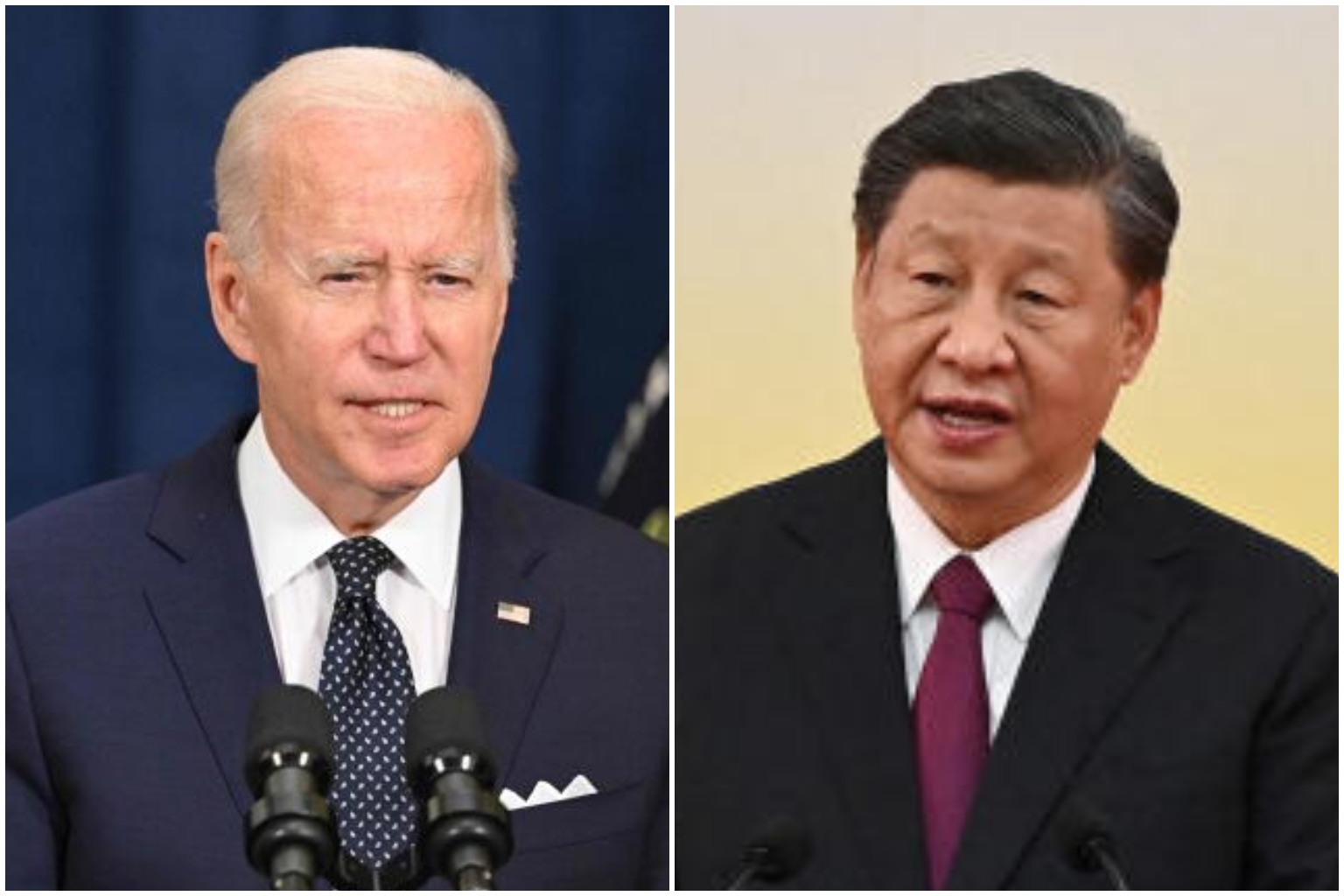Biden and Xi in two-hour call amid rising tensions between their countries
Sign up now: Get insights on Asia's fast-moving developments

The call at 8.33pm is the fifth between US President Joe Biden and Chinese President Xi Jinping.
PHOTOS: AFP, REUTERS
BEIJING - United States President Joe Biden and his Chinese counterpart Xi Jinping spoke for more than two hours over the phone on Thursday (July 28), their fifth such interaction since last year.
“President Biden concluded his conversation with President Xi Jinping of the People’s Republic of China (PRC) at 10.50am Eastern Time (10.50pm in Singapore and Beijing),” said the White House of the call that started just after 8.30am.
Chinese state media released an equally brief statement.
“Xi Jinping and US President Biden spoke over the phone,” reported the official Xinhua news agency.
Beijing has been unusually reticent over the latest call, with the Foreign Ministry refusing to confirm or deny details as recently as Thursday afternoon.
"The Chinese and US heads of state maintain communication using various means," said spokesman Zhao Lijian. "China will announce information about this in a timely manner."
The call follows National Security Adviser Jake Sullivan's meeting in Luxembourg in June with China's top diplomat Yang Jiechi, as well as Secretary of State Antony Blinken's meeting with Foreign Minister Wang Yi in Bali this year.
White House officials have said the long-planned call will have a broad agenda, including discussion of Russia's invasion of Ukraine.
"This is the kind of relationship-tending that President Biden believes strongly in doing, even with nations with which you might have significant differences," Mr John F. Kirby, a National Security Council spokesman, told reporters on Wednesday. "There's importance and value in keeping the lines of communication open."
Beijing and Washington are still embroiled in a trade war and tensions between both countries are at an all-time high.
Adding to their agenda are increased tensions over Taiwan, which have threatened to boil over since rumours of a visit by Speaker of the House of Representatives Nancy Pelosi.
China has issued escalating warnings about repercussions should the visit go ahead, promising "forceful measures".
"If the US insists on going its own way and challenging China's bottom line, it will surely be met with forceful responses," said Mr Zhao during a briefing on Wednesday. "All ensuing consequences shall be borne by the US."
Beijing sees self-ruling Taiwan as a renegade province which will be retaken by force if necessary. Washington does not have official ties with Taipei as it has diplomatic relations with Beijing under the "one China" policy. But it is obliged by US law to provide the island with the means to defend itself.
The White House has reiterated that its "one China" policy has not changed.
The last time a US politician of a similar level visited Taiwan was in 1997, when then Speaker Newt Gingrich went to the island.
As a co-equal branch of government, the Speaker of the House of Representatives is technically second in line to the presidency, and the US executive has little control over congressional travel.


